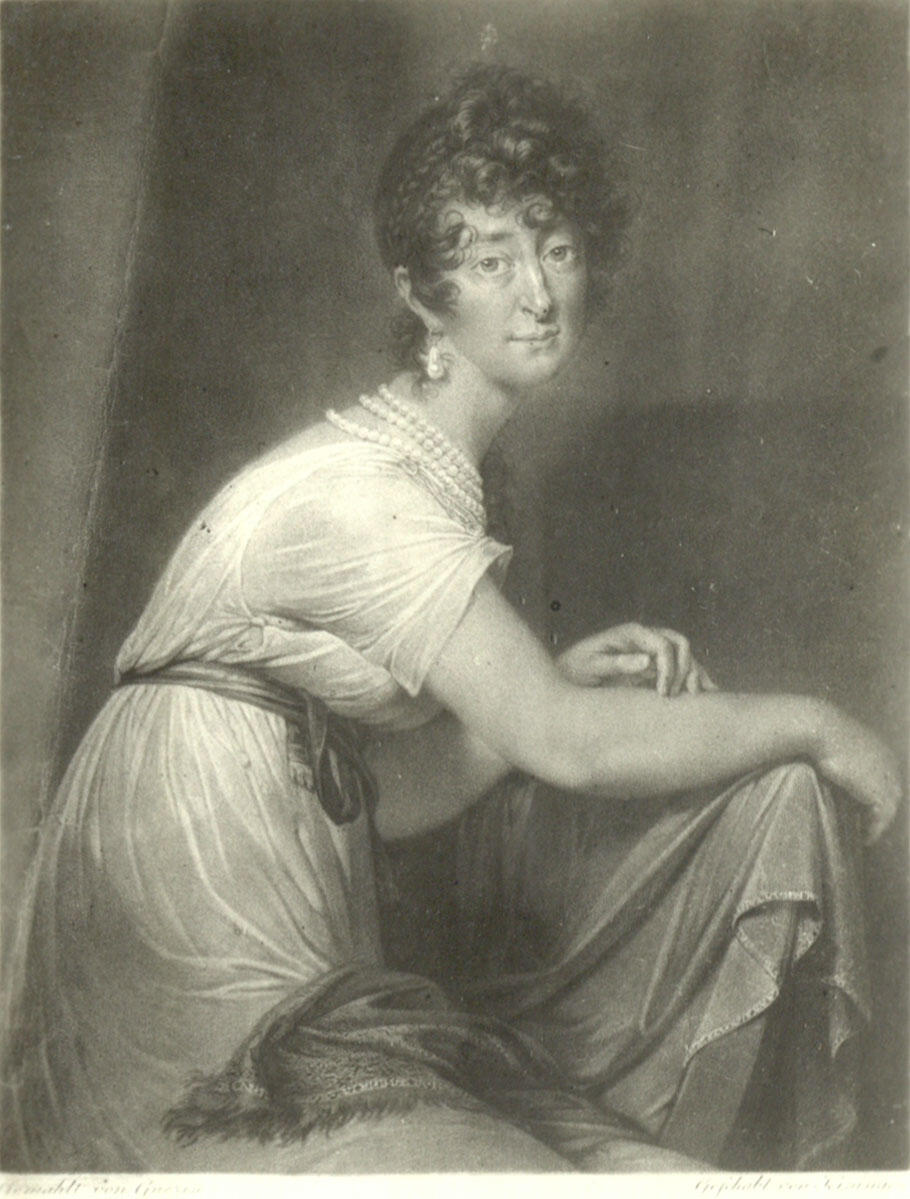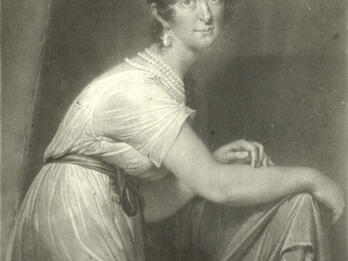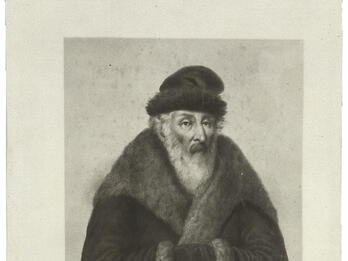Portrait of Fanny von Arnstein
Vincenz Georg Kininger
1804

Creator Bio
Vincenz Georg Kininger
Vincenz Georg Kininger was a watercolor painter, portrait miniaturist, engraver, and lithographer. Born in Regensburg, Bavaria, he moved to Vienna as a child with his family. When he was still a teenager, he entered the Vienna Academy and, in 1807, became Professor of Mezzotinto Engraving there. He is best known for his portraits of members of the Viennese upper class.
Related Guide
Literature and Modernity
Jewish writing in the period spanning 1750–1880 reflects the profound changes that confronted Jews in modernity. Some writers self-consciously broke with traditional and religious models; others definitely embraced it.
Related Guide
Life Writing: Biography, Autobiography, and Ego Documents
The famous and the obscure, women and men, in epitaphs and private letters, ethical wills, cookbooks, and religious reflections, all reflect aspects of Jewish life in a period of great transition.
Related Guide
The Salon in Jewish History
Salons fostered a new class of social leaders, a space for ideas and art appreciation to grow without fear of political reprisals. In a society still constrained by social and legal boundaries, salons and their hosts created a miniature world in which social taboos were temporarily cast off.
You may also like

First Will
Letters to Richea Gratz
A Letter to Chief Rabbi Raffael Natan Tedesco of Trieste

Register of a Jewish Midwife

Title Page of the Register of a Jewish Midwife



